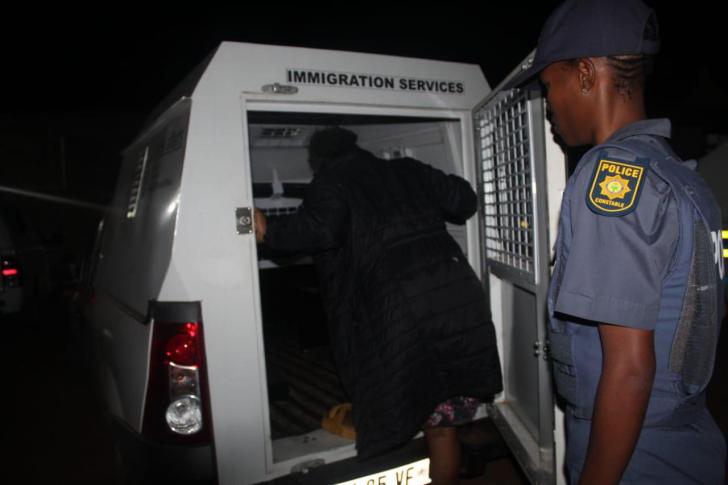News / National
Zimbabwe engages SA over deportations
25 Oct 2024 at 07:48hrs |
0 Views

The Zimbabwean government is currently in discussions with South Africa regarding the fate of its citizens facing deportation following the expiration of their permits. This comes in light of recent statements by South Africa's Home Affairs Minister, Leon Schreiber, who disclosed to Parliament that the country has spent R53,817,656 on deporting undocumented immigrants, the majority of whom are Zimbabweans.
Of the 19,750 undocumented immigrants deported, the largest groups were from Zimbabwe, Malawi, Tanzania, Nigeria, and the Democratic Republic of Congo. In response, the South African government has issued warnings to Zimbabwean immigrants and others, urging them to regularize their residency or face deportation.
There are approximately 180,000 holders of the Zimbabwean Exemption Permit (ZEP) in South Africa, a program introduced in 2009 as a temporary measure to address the increasing refugee crisis stemming from Zimbabwe.
Justice Minister Ziyambi Ziyambi addressed the situation in the Senate, stating that the government is actively engaging with Pretoria regarding the potential deportations. "South Africa has its own laws that govern their immigration. What we can do as a government is to ensure that the needs of our people, wherever possible, are managed through our bilateral relations," Ziyambi explained.
He acknowledged that the South African government has decided against renewing permits that were granted after 2008, signaling a shift in policy regarding undocumented immigrants.
The ZEP program was declared unlawful, unconstitutional, and invalid earlier this year when South Africa's Supreme Court of Appeal dismissed an application by former Home Affairs Minister Aaron Motsoaledi to challenge a Pretoria High Court ruling.
Ziyambi added, "We are waiting to see whether the South Africans will be open to negotiations to allow our people, who have been residing there, to continue their stay under the jurisdiction of the South African government. Diplomatic discussions between our Foreign Affairs ministry and their Department of International Relations are ongoing."
South Africa remains a prime destination for Zimbabweans and other African immigrants fleeing conflict, poverty, and hunger in their home countries, making the outcome of these negotiations particularly significant for many families affected by the impending deportations.
Of the 19,750 undocumented immigrants deported, the largest groups were from Zimbabwe, Malawi, Tanzania, Nigeria, and the Democratic Republic of Congo. In response, the South African government has issued warnings to Zimbabwean immigrants and others, urging them to regularize their residency or face deportation.
There are approximately 180,000 holders of the Zimbabwean Exemption Permit (ZEP) in South Africa, a program introduced in 2009 as a temporary measure to address the increasing refugee crisis stemming from Zimbabwe.
Justice Minister Ziyambi Ziyambi addressed the situation in the Senate, stating that the government is actively engaging with Pretoria regarding the potential deportations. "South Africa has its own laws that govern their immigration. What we can do as a government is to ensure that the needs of our people, wherever possible, are managed through our bilateral relations," Ziyambi explained.
The ZEP program was declared unlawful, unconstitutional, and invalid earlier this year when South Africa's Supreme Court of Appeal dismissed an application by former Home Affairs Minister Aaron Motsoaledi to challenge a Pretoria High Court ruling.
Ziyambi added, "We are waiting to see whether the South Africans will be open to negotiations to allow our people, who have been residing there, to continue their stay under the jurisdiction of the South African government. Diplomatic discussions between our Foreign Affairs ministry and their Department of International Relations are ongoing."
South Africa remains a prime destination for Zimbabweans and other African immigrants fleeing conflict, poverty, and hunger in their home countries, making the outcome of these negotiations particularly significant for many families affected by the impending deportations.
Source - newsday
Join the discussion
Loading comments…


































